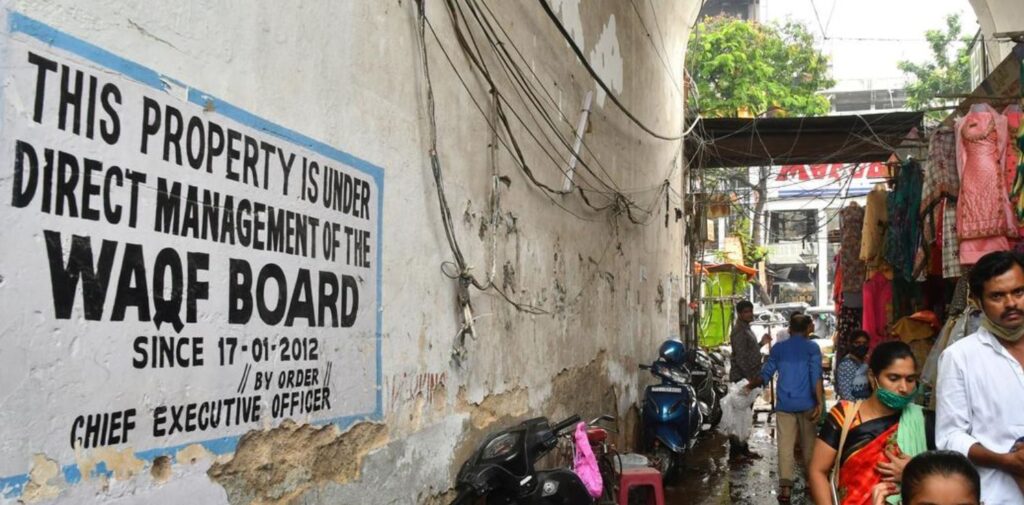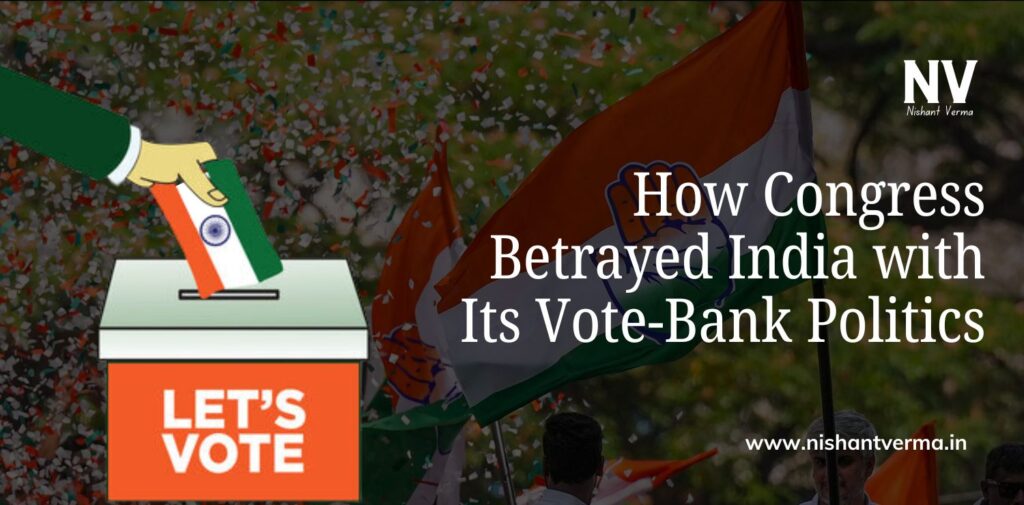For decades, the Congress party has been accused of prioritizing its vote bank over the welfare of the nation, resulting in policies that have often alienated the majority community while appeasing the minorities. This strategy not only deepened the communal divide but also damaged India’s socio-political fabric. Two of the most controversial creations linked to these appeasement policies are the All India Muslim Personal Law Board and the Waqf Board, which have been seen as tools to consolidate Muslim votes at the cost of national unity.
Let’s delve into how these institutions were created, why they exist, and the long-lasting consequences of Congress’s policy of appeasement.
The Formation of the All India Muslim Personal Law Board
The All India Muslim Personal Law Board was established in 1973, under the Congress government’s tenure, with the aim of preserving Muslim personal laws based on Sharia. The decision was portrayed as a step to safeguard the cultural identity of Muslims in India. However, it was perceived by many as a divisive move that went against the concept of a Uniform Civil Code—a principle enshrined in the Indian Constitution’s Directive Principles.
A Uniform Civil Code advocates for a single set of laws governing marriage, divorce, inheritance, and adoption for all citizens, irrespective of their religion. Yet, Congress’s support for a separate law board for Muslims not only contradicted this principle but also created a rift in society. This was a clear instance of the Congress party sacrificing national unity for its political ambitions, paving the way for identity politics.

The Creation and Influence of the Waqf Board
The Waqf Board was another strategic creation by Congress, allowing it to manage and control large tracts of land and properties under the guise of religious endowment for the Muslim community. The properties under the Waqf Board’s control are significant, with some estimates suggesting it manages around 6 lakh acres of land across India. This includes prime locations in metropolitan cities, which could have been utilized for national development but are instead locked in religious control.
The establishment of the Waqf Board granted unparalleled autonomy to the community in handling properties and assets, which led to allegations of misuse, illegal occupations, and economic loss to the nation. By granting such extensive powers and resources to the Waqf Board, Congress seemed more focused on catering to a specific community’s interests to maintain its vote bank rather than ensuring the welfare of the entire nation.

Congress’s Long-Standing Strategy of Muslim Appeasement
The Congress party’s approach to Muslim appeasement can be traced back to the early years of post-independence India. Various leaders from the party have been accused of altering their public personas, even changing names to portray themselves as secular while pandering to the minority community.
For instance, the narrative surrounding prominent Congress leaders with Muslim lineage often raises questions about their motivations and whether their policies were influenced by personal biases. The party’s calculated efforts to consolidate Muslim votes were evident in numerous policies and actions that seemed to put minority interests above national interests.
Consequences of Appeasement Politics
The impact of Congress’s appeasement politics has been far-reaching and damaging. By creating separate institutions and laws for different communities, the party promoted a sense of separatism and exclusivity that deepened the divide between Hindus and Muslims. Instead of encouraging integration and unity, Congress’s policies created a fragmented society where different communities feel alienated and disenfranchised.
Moreover, the creation of bodies like the Muslim Personal Law Board and the Waqf Board has had several unintended consequences:
- Legal Complications: The presence of separate personal laws has created a complex legal environment, with Muslims and Hindus governed by different rules. This has led to issues of inequality, especially for Muslim women, who often face discrimination under Sharia-based personal laws.
- Misuse of Waqf Properties: The autonomy granted to Waqf boards has resulted in rampant corruption, illegal occupation of properties, and a lack of accountability. Waqf properties, meant for the welfare of the Muslim community, are often mismanaged and misappropriated, leading to economic losses for the nation.
- Communal Tensions: The policies of appeasement have contributed to the rise of communal tensions. Many Hindus view the preferential treatment given to Muslims as a betrayal, creating resentment and distrust between communities.
- National Disunity: Instead of fostering a sense of national unity, Congress’s policies have led to increased polarization. The party’s strategy of pandering to one community at the cost of another has weakened the very fabric of the nation.

Hindus Paying the Price of Congress’s Actions Even Today
Even more than seven decades after independence, the consequences of Congress’s policies are still felt by the Hindu community. Many feel that they have been marginalized in their own country, with the Congress party consistently favoring minorities for electoral gains. This perception of alienation has fueled the rise of right-wing politics, which seeks to counterbalance Congress’s legacy of appeasement.
Congress’s actions have not only impacted the Hindu community but have also harmed the nation as a whole. By prioritizing votes over national unity, the party has hindered India’s progress and development.
Conclusion: Congress Betrayed India Interests
The Congress party’s history is marked by policies that prioritized short-term political gains over long-term national interests. The creation of the All India Muslim Personal Law Board and the Waqf Board are prime examples of how the party sought to consolidate its vote bank at the cost of national unity and integrity. These institutions, rather than fostering harmony, have contributed to the division of communities and the rise of communal tensions.
India continues to pay the price for Congress’s appeasement politics, and the wounds inflicted by these policies are far from healed. It is high time for the nation to move beyond these divisive strategies and focus on policies that unite rather than divide. The Congress party’s legacy serves as a stark reminder of the damage that vote-bank politics can inflict on a nation, and the importance of prioritizing national unity above all else.




